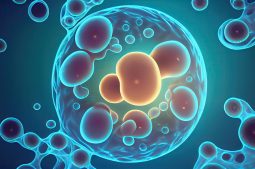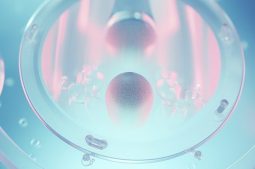In vitro fertilisation (IVF) works just the same for lesbian couple IVF as for any other couple. The only slight difference is that, rather than donor sperm being an option, it is a necessity. When a lesbian couple embarks on the exciting journey of family building, there are plenty of options for fertility treatments that will make their dreams a reality. These range from simple intrauterine insemination with the use of donor sperm, to IVF or IVF using the shared parenthood method known as reciprocal IVF or ROPA (Reception of Oocytes from the Partner). We have taken a closer look at how intrauterine insemination (IUI) works in our blog article about the IUI timeline.
In this article, we focus on lesbian couple IVF, looking at the circumstances in which it may be your chosen route to building your family. We also explain the ROPA method, which is based on IVF, so that you can consider whether its potential benefits could be your best option.
Lesbian couple IVF: why choosing it?
IVF is all about helping with infertility problems. This could obviously be experienced by one or both of the women in a lesbian couple just the same as any other woman. IVF, with the use of donor sperm, could well be the recommended fertility treatment for the partner who is to be the genetic mother in a variety of circumstances:
- When simpler, less invasive fertility treatments such as IUI have not been successful;
- Cases where the woman suffers from endometriosis, which can have an adverse impact on the fallopian tubes and on egg quality;
- If the woman is in the more advanced age group and has low-quality oocytes;
- An absence or blockage of the fallopian tubes.
Success rates are likely to be at least as good as for any IVF treatment. They depend to a very large extent on factors such as age, medical and reproductive history and ovarian reserve.
What happens in regular IVF?
Before we take a look at the particular form of IVF known as reciprocal IVF or the ROPA method, let’s run through a quick recap of what happens during the IVF procedure.
- The process begins with ovarian stimulation. We use hormonal medication which encourages the ovaries to produce multiple oocytes (eggs) rather than the usual one. This part of the treatment lasts between 15 and 25 days.
- When they have reached the desired level of maturity, the eggs are retrieved in a quick procedure carried out under light anaesthetic. They are then fertilised, using prepared sperm, in the laboratory.
- The resulting embryos are observed as they develop in the laboratory. During this time the woman’s endometrium, the uterus lining, is prepared with further hormonal medication to ensure it is in the ideal state for reception of an embryo.
- After around five days, the best embryo is selected for transfer to the woman’s uterus. If the procedure is successful, it will implant in the womb and pregnancy will be confirmed after around two weeks.
What is different about the ROPA Method?
Reception of oocytes from the partner is known as the ROPA method. It is a development of the regular IVF procedure for couples made up of two women. It allows both partners to participate in parenthood in a very direct and real way. Basically, one partner is the genetic parent, supplying the oocytes, the other partner is the gestational parent who will carry the pregnancy, give birth and feed the baby.
The couple needs to decide together, in light of medical advice, which of them will supply the eggs and which will become the gestational mother. There could be a clear reason for one or the other. The younger partner is likely to have better quality oocytes, but many other factors can come into play. Other medical indications affecting either partner could include:
- The absence of her own oocytes or alterations in oocyte quality;
- Severe ovarian dysfunction;
- A risk of transmission of a hereditary disease to the child;
- The presence of any chromosomal or genetic abnormalities;
- The failure of previous assisted fertility treatments.
Watch this video to have more information about the ROPA Method at IVI:
Of course, every individual patient and every couple is different. Moreover, in the absence of any medical imperative, everyone will naturally wish to reach their own decision, based on their circumstances and personal preferences. When the decision has been made, here’s what happens next. We’ll call the partner who supplies the eggs Alpha and the partner who is the gestational mother Omega.
- Alpha undergoes the hormonal treatment for ovarian stimulation. At the right time, her eggs are retrieved and fertilised in the laboratory with prepared donor sperm.
- While the embryos are developing in the laboratory, Omega undergoes the hormonal treatment to prepare her uterus for reception of an embryo.
- A selected embryo is then transferred to the uterus of Omega. There, if the procedure is successful, pregnancy results and she gives birth to the couple’s child.
That, in a nutshell, is the ROPA method. It is increasingly becoming the treatment of choice for lesbian couple IVF. Since this technique is relatively new, we do not yet have a great deal of statistical evidence about success rates. There is, however, every indication that success rates are identical to overall IVF success rates.
Contacting us at IVI
The good news is that overall, nine out of ten couples who consult us with fertility problems and put their trust in us, do reach their goal of becoming parents. If you and your partner are ready to embark on your own family adventure, why not come and talk to us at IVI about the ROPA method, or any other fertility issue you may need to discuss. It’s easy to get in touch using our online contact form, and it could be the first step to fulfilling your family dream.





Comments are closed here.